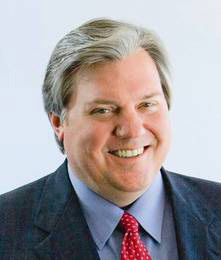HARLINGEN — The city’s proposed $43.5 million general fund budget comes with a $1 million shortfall.
Meanwhile, the city may not be able to afford the local police and fire unions’ requests for salary increases.
Ongoing collective bargaining negotiations seek to reach new police and firefighter contracts before the fiscal year closes Sept. 31.
In a workshop this week, City Manager Dan Serna proposed the $43.5 million budget, which would come without a property tax rate increase.
“Those are preliminary budget figures,” Mayor Chris Boswell said yesterday. “We continue to work on that.”
Boswell said the city plans to dip into its $16.2 million cash reserve fund to offset the proposed deficit stemming from nearly $1 million in expenditures for fire department capital improvements.
Serna has proposed spending $587,000 to buy a new fire truck and $114,000 for breathing equipment.
“Those are capital expenditures,” Boswell said. “That qualifies us to use our fund balance.”
But union requests could call on officials to dip into city coffers.
This year, Serna’s goals include reaching contract agreements with the police and firefighter unions.
However, Boswell said the city might not be able to fund the unions’ requests for salary increases.
Neither union nor city officials have disclosed any of those requests.
“We may not be able to make that increase,” Boswell only said.
Last year, the city and unions failed to reach agreements on new contracts, so police officers and firefighters have worked under the contract’s so-called evergreen clause, which expires Sept. 31.
That means if the parties cannot reach an agreement by Sept. 31, the city would approve a resolution to preserve police and firefighters salaries and benefits while entering mediation, City Attorney Ricardo Navarro said.
But Serna is counting on reaching an agreement before the close of the fiscal year.
“We are in on-going negotiations,” Serna said. “We are hopeful we can reach an agreement that’s good for both parties.”
Like Boswell, Serna said the city may not be able to fund the unions’ pay requests.
“What the budget allows is what the budget allows and it’s a tight budget,” Serna said.
Three years ago, collective bargaining talks with the police union led to a two-year contract that came with 2.5 percent raises in 2014-2015 and 3.5 percent raises in 2015-2016.
Police officers’ full-time salary package climbed about $700,000 from 2013-2014 to 2015-2016.
In 2015-2016, the full-time salary package stood at $6.5 million, up from $5.8 million in 2013-2014.
As part of the city’s then-$41 million general fund budget, the city’s 325 non-civil service employees received 2-percent increases as part of a $184,000 package.
This year, the city plans to spend $1.9 million on street repairs funded through a new street maintenance fee added to utility customers’ monthly bills.
The fee replaces the city’s former so-called infrastructure fee that charged utility customers $1 a month to help fund projects such as public building improvements.
Under a new ordinance, utility bills include a monthly $2.50 fee for apartments and other multi-family units; a $2.50 monthly fee for single-family homes using 1,000 gallons of water a month or less; a $4.50 monthly fee for single-family homes using more than 1,000 gallons a month; and an $8.50 monthly fee for commercial accounts.
That’s expected to generate about $1.4 million a year.
The city also has proposed spending $293,225 to buy five pickup trucks and fund other expenditures.
Serna called the health insurance costs “a huge factor.”
The city is requesting proposals for employee health insurance after Blue-Cross Blue-Shield, which offered the city a $6.5 million policy last year, proposed a 23 percent increase, Serna said.
Proposed general fund budget
Revenues $42.5 million
Expenditures $43.5 million
Fund balance $16.2 million




